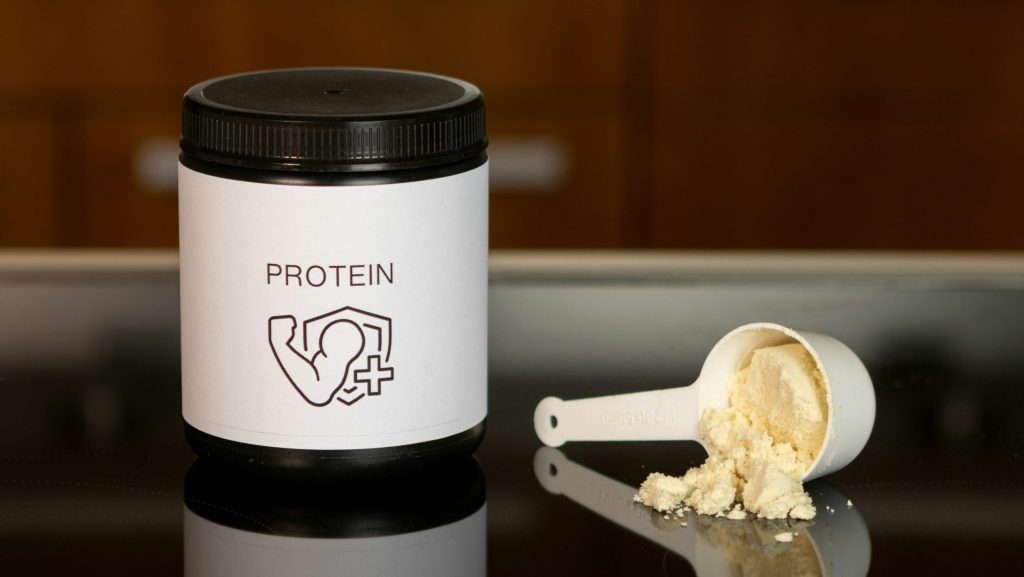Table of Contents
Low-carb protein shakes are essential for individuals aiming to lose weight and maintain muscle mass. These shakes provide a combination of high-quality proteins with low carbohydrates, making them ideal for ketogenic diets and general fitness nutrition. They offer a balanced approach to dieting by supporting muscle recovery and providing essential nutrients without excessive carb intake.
“Did you know that incorporating low-carb protein shakes into your diet can accelerate weight loss and enhance muscle recovery? The strategic blend of high-quality protein in a low-carbohydrate matrix makes these shakes an indispensable component of a fitness-focused diet.”
This article covers several key topics to help you integrate low-carb protein shakes into your dietary regimen effectively:
- Benefits of Low-Carb Protein Shakes: Explains how these shakes aid in weight loss and muscle maintenance, highlighting their nutritional value.
- Choosing the Right Protein Powder: Offers guidance on selecting protein powders that align with a low-carb diet, focusing on effectiveness and enjoyment.
- Top Low-Carb Shake Recipes: Provides recipes for tasty, easy-to-prepare shakes that fit into a low-carb dietary plan.
- Integrating Shakes into Your Diet: Shares strategies for adding protein shakes to your daily meals, emphasizing nutritional balance.
- Success Stories & Testimonials: Features accounts from individuals who have successfully incorporated low-carb protein shakes into their weight loss strategies.
Low-carb protein shakes are a practical addition to a diet for those seeking to lose weight and build or maintain muscle. They are versatile, allowing for numerous tasty recipes that can suit any taste preference while adhering to a low-carb, high-protein dietary guideline. These shakes can play a crucial role in a balanced fitness and nutrition plan, providing a convenient source of protein that supports muscle recovery and growth, and aids in weight management.
Benefits of Low-Carb Protein Shakes
Low-carb protein shakes provide essential nutrients with minimal carbohydrates, supporting weight management and muscle maintenance. These shakes align with ketogenic diets and general fitness nutrition, offering a balanced dietary option for individuals focused on health and fitness.
Nutritional Breakdown
Low-carb protein shakes are formulated to maximize nutritional benefits while minimizing carbohydrate content. High-quality protein sources, such as whey, casein, or plant-based proteins, are key for muscle repair and growth. These shakes typically minimize carbohydrates, supporting those on low-carb diets. Vitamins and minerals in these shakes support overall health, and fiber is included for digestive health.
“A single serving of a low-carb protein shake can provide up to 30 grams of high-quality protein, essential for muscle repair and growth, with less than 5 grams of carbohydrates.”
Weight Loss Mechanisms
Low-carb protein shakes aid in weight loss by promoting satiety, reducing calorie intake, and supporting a caloric deficit. The high protein content increases the thermic effect of food, which boosts metabolism. These shakes offer a convenient, nutritious alternative to less healthy food choices, especially for those with busy lifestyles.
| Nutrient | Role in Weight Loss |
|---|---|
| Protein | Increases satiety, boosts metabolism |
| Fiber | Enhances digestive health, adds to fullness |
| Vitamins/Minerals | Supports overall health and metabolic processes |
Muscle Recovery & Growth
Protein is essential for muscle recovery and growth, making low-carb protein shakes an optimal post-workout choice. These shakes provide a quick and efficient source of protein after exercise, supporting muscle synthesis and repair. The low carbohydrate content ensures that dietary goals are maintained alongside muscle recovery needs.
Low-carb protein shakes are a practical dietary addition for those aiming to lose weight and maintain or build muscle. They are adaptable, allowing for a variety of recipes that cater to different taste preferences while adhering to low-carb, high-protein dietary guidelines. These shakes play a crucial role in a balanced fitness and nutrition plan, providing a convenient source of protein that supports muscle recovery and growth, and aids in weight management.

Choosing the Right Protein Powder
Selecting an appropriate protein powder is crucial for enhancing dietary plans with low-carb protein shakes, aiming at weight loss, muscle growth, or maintaining balanced nutrition. The variety of protein powders available caters to various health objectives, dietary restrictions, and preferences, necessitating an informed choice to match personal fitness goals and dietary preferences.
“Whey protein isolates are one of the purest forms of protein available, often containing 90% or more protein by weight.”
Types of Protein Powders
The protein powder market offers a wide range of options to accommodate different health objectives and dietary restrictions.
- Whey Protein: Known for its high biological value and rapid absorption, whey protein is ideal for post-workout recovery. Whey isolate, specifically, is processed to remove fats and carbs, offering a purer protein source suitable for weight loss and muscle building.
- Casein Protein: Digests more slowly, providing a gradual release of amino acids, beneficial for muscle repair during sleep.
- Soy Protein: A complete plant-based protein offering all essential amino acids, suitable for vegetarians and those with dairy intolerances.
- Plant-Based Proteins: Including pea, rice, and hemp, these cater to vegan diets and often come enriched with fibers and other nutrients.
Low-Carb Considerations
When following a low-carb diet, it’s important to select protein powders that complement this dietary approach.
- Check Carbohydrate Content: Ideal powders have less than 3 grams of carbs per serving.
- Avoid Added Sugars: Choose products without added sugars or artificial sweeteners.
- Consider Dietary Needs: For ketogenic diets, select powders that support ketosis.
Taste and Mixability
The enjoyment and consistency of supplementing with protein powders can be significantly influenced by their taste and how well they blend with liquids. Variances in flavor, texture, and ease of mixing affect overall satisfaction and adherence to a protein supplementation regimen. It’s beneficial to sample different flavors and brands to find a preferred product that mixes well with chosen liquids, enhancing the dietary experience.
Choosing the right protein powder is key to customizing low-carb protein shakes for individual health goals and dietary preferences. Understanding the types of protein powders and their specific benefits enables informed decisions, enhancing nutrition plans. Careful selection based on type, carb content, taste, and mixability leads to better health outcomes and satisfaction with dietary choices, contributing to the achievement of fitness and wellness objectives.
Top Low-Carb Shake Recipes
Adopting a low-carb or ketogenic diet is compatible with enjoying diverse and flavorful foods, including protein shakes. These shakes are essential for those aiming to maintain a low-carb intake without sacrificing taste and variety. They serve multiple dietary needs, from meal replacements to workout supplements and dessert alternatives, all aligned with low-carb dietary guidelines.
Meal Replacement Shakes
Meal replacement shakes are invaluable for low-carb diets, offering a convenient and balanced way to consume essential nutrients without excessive carbs. These shakes are designed to be rich in proteins and healthy fats, ensuring satiety and energy throughout the day, while also providing a significant portion of recommended daily intake for vitamins and minerals.
“A well-formulated low-carb meal replacement shake can provide over 30% of your daily recommended intake of essential vitamins and minerals, making it a powerhouse of nutrition.”
Key ingredients include high-quality protein sources to promote muscle maintenance and growth, and fiber-rich vegetables and seeds to support digestive health. The inclusion of healthy fats, such as those from avocados or nuts, contributes to the overall caloric needs without adding carbs.
Pre and Post-Workout Shakes
The effectiveness of workout routines can be enhanced with the right nutrition, particularly through tailored pre and post-workout shakes. These shakes are designed to meet the body’s needs for energy pre-exercise and recovery post-exercise.
| Ingredient | Benefit |
|---|---|
| MCT Oil | Provides immediate energy boost |
| Caffeine | Enhances focus and endurance |
| Berries | Offers antioxidants for recovery |
| Protein Powder | Supports muscle repair and growth |
Dessert Alternatives
For those on a low-carb diet, finding satisfying dessert alternatives can be a challenge. Protein shakes crafted as dessert alternatives can fulfill sweet cravings without the carb load typical of traditional desserts. Utilizing natural sweeteners, low-carb fruits, and flavoring agents, these shakes offer the pleasure of dessert with the benefits of a health supplement.
Creating dessert-style shakes often involves combining cocoa powder, vanilla extract, or cinnamon with a protein base, adding stevia or erythritol for sweetness, and incorporating creaminess through sources like coconut milk or almond milk. These ingredients allow for a variety of dessert-inspired flavors, from chocolate and peanut butter to fruity and spicy mixes, all maintaining low carb content.
Incorporating these diverse protein shake recipes into a low-carb diet enhances both nutritional intake and dietary enjoyment. They prove that maintaining dietary restrictions doesn’t mean sacrificing flavor or variety, with each recipe designed to support health goals and satisfy taste preferences.

Integrating Shakes into Your Diet
Integrating protein shakes into a diet effectively requires understanding their nutritional value and how they can complement your overall meal plan. This approach ensures protein shakes contribute to achieving your health and nutritional goals, providing a practical method for enhancing diet quality and supporting fitness objectives.
Meal Planning Tips
Incorporating protein shakes into your daily diet involves strategic planning. These shakes serve as a versatile nutritional supplement, suitable for various dietary needs.
- Consider the timing: Morning shakes can provide a nutritious start for those skipping breakfast, while post-workout shakes aid in recovery.
- View shakes as supplements: They should complement a diet rich in whole foods, adding nutritional value without replacing complete meals.
- Use shakes for controlled calorie intake: They can help manage daily caloric consumption, supporting weight management efforts.
Balancing Macronutrients
A well-rounded diet includes a balance of proteins, fats, and carbohydrates. Protein shakes can play a significant role in this balance, especially for those focusing on protein intake for muscle building or maintenance.
“A balanced macronutrient profile in a diet can enhance metabolic health, support muscle repair and growth, and contribute to sustained energy levels throughout the day.”
Consider the macronutrient composition of your shakes and how they fit into your total daily intake. Shakes should provide protein without disproportionate carbs or fats, aligning with dietary goals such as low-carb or ketogenic diets.
Avoiding Common Mistakes
Proper use of protein shakes avoids common dietary pitfalls, ensuring they support rather than hinder your health goals.
- Diversify Your Diet: Relying solely on shakes can lead to nutritional imbalances. Include a variety of whole foods in your diet.
- Account for All Macronutrients: Protein shakes should complement your intake of other macronutrients, maintaining a balanced diet.
- Read Nutritional Labels: Be mindful of the caloric and macronutrient content of shakes, choosing those that align with your dietary objectives.
Incorporating protein shakes into your diet can significantly enhance nutritional intake when done thoughtfully. By strategically planning their use, ensuring macronutrient balance, and avoiding over-reliance on shakes, you can leverage their benefits to support a healthy, balanced diet. This approach to diet integration emphasizes informed choices and dietary diversity, contributing to overall wellness and fitness achievements.
Success Stories & Testimonials
Incorporating protein shakes into a dietary plan has been pivotal for many individuals aiming to enhance their health, fitness, and overall well-being. Documented success stories and testimonials serve as evidence of the significant impact these nutritional supplements can have when used effectively alongside a balanced diet and exercise regimen.
Weight Loss Journeys
Protein shakes have played a crucial role in the weight management strategies of numerous individuals, providing a low-calorie, high-protein alternative to traditional meals that can help maintain a caloric deficit without sacrificing satiety or nutrition.
“One individual’s journey showcased a remarkable loss of 50 pounds over 6 months, attributing this success primarily to integrating protein shakes with a disciplined exercise routine.”
The ability of protein shakes to support weight loss is often highlighted in testimonials, with individuals citing improved metabolic health, enhanced satiety, and a more manageable approach to reducing daily caloric intake as key factors in their success.
Fitness Goals Achieved
The versatility of protein shakes extends into the realm of fitness, where they are utilized to support muscle growth, recovery, and performance enhancement. Testimonials from a wide range of fitness enthusiasts reveal how protein shakes have supported their goals, from gaining muscle mass to improving endurance.
- Increased Muscle Mass: Several testimonials highlight gains in lean muscle mass, supported by post-workout protein shakes.
- Improved Endurance: Individuals report enhanced stamina and reduced recovery times, crediting regular protein shake consumption.
- Achieved Performance Goals: Stories often include specific achievements, such as completing a marathon, directly linked to improved nutritional support from protein shakes.
Dietary Adjustments
Transitioning to a low-carb or ketogenic diet is a significant change that can be facilitated by the strategic use of protein shakes. Testimonials from those who have made such dietary adjustments often stress the shakes’ role in easing the transition, providing a satisfying and convenient option that fits within the dietary guidelines.
The adaptation to a low-carb lifestyle is frequently described as more manageable with the inclusion of protein shakes, which offer a palatable and versatile way to increase protein intake while keeping carbs in check. These personal stories underline the adaptability of protein shakes to various dietary needs and goals.
The success stories and testimonials compiled in this subtopic not only offer motivation but also practical insights into the use of protein shakes as part of a comprehensive approach to health and fitness. They underscore the potential benefits of these nutritional supplements in supporting weight loss, enhancing fitness outcomes, and facilitating dietary changes, providing readers with real-life examples of positive transformations achieved through dietary supplementation with protein shakes.

Conclusion: Low-Carb Protein Shakes for Weight Loss
Low-carb protein shakes are a significant component of nutrition plans aimed at enhancing health, fitness, and overall well-being. This article has systematically explored the benefits, considerations, and practical applications of protein shakes within a dietary framework.
Key Insights:
- Nutritional benefits of low-carb protein shakes include supporting weight loss and muscle growth.
- Selecting the right protein powder tailors shakes to individual dietary needs.
- Various shake recipes cater to meal replacements, workout nutrition, and dessert alternatives.
- Thoughtful planning and macronutrient balance are crucial for integrating protein shakes into diets effectively.
- Real-life success stories highlight the positive impacts of protein shakes on health and fitness objectives.
The article has provided a comprehensive overview, from the nutritional advantages of low-carb protein shakes and how to choose the right protein powder, to offering creative recipes and strategies for diet integration. Additionally, the shared success stories illustrate the tangible benefits these shakes have brought to individuals’ lives, underscoring the potential for positive change through dietary adjustments.
“These shakes can be a transformative element of your nutritional plan, whether your goal is weight loss, muscle building, or simply maintaining a balanced diet.”
Incorporating protein shakes into your diet requires more than understanding their benefits; it demands a strategic approach to meal planning, a commitment to balancing macronutrients, and an awareness of common pitfalls. By adhering to the guidance outlined, readers can maximize the advantages of protein shakes, contributing to a balanced, health-focused lifestyle.
Protein shakes are more than a convenience; they are a tool for achieving dietary and fitness goals. As demonstrated through various success stories, these shakes can play a pivotal role in weight management, fitness enhancement, and overall health improvement. Readers are encouraged to consider how protein shakes might fit into their own dietary plans, using the insights from this article to make informed decisions that support their health and wellness journeys.